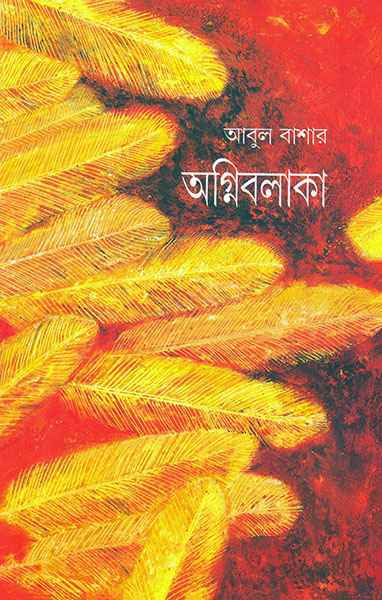Agnibalaka
Agnibalaka is backordered and will ship as soon as it is back in stock.
Couldn't load pickup availability
Genuine Products Guarantee
Genuine Products Guarantee
We guarantee 100% genuine products, and if proven otherwise, we will compensate you with 10 times the product's cost.
Delivery and Shipping
Delivery and Shipping
Products are generally ready for dispatch within 1 day and typically reach you in 3 to 5 days.
Author: Abul Bashar
Genre: Novel (Upanyas)
Binding: Hardcover
ISBN: 9788172152154
Pages: 592
Weight: 663 grams
Book Description
In "Agnibalaka", Abul Bashar presents an ambitious narrative set against the tumultuous backdrop of the 1970s. The novel captures a critical period in Indian history—the Emergency imposed on June 26, 1975, and lasting until March 21, 1977. This period marked a significant political turning point in India, and Bashar intricately weaves it into his narrative to explore how this era of political upheaval influenced personal and societal transformations.
The novel’s central character, Rahul, witnesses his father being abducted by police from their home, an event that shakes him to his core and opens his eyes to the deeper socio-political realities of India. As Rahul delves into the intricacies of political ideologies, societal change, and personal conflicts, he embarks on a journey to understand not just his own identity but the very soul of the nation. The narrative focuses on the tension between two political parties rooted in the same ideals but differing in their methods and internal conflicts, alongside themes of revolution, sacrifice, and love.
Bashar masterfully brings forth a societal shift, where ideals clash with harsh political realities. Through Agnibalaka, the author challenges the notions of revolutionary sacrifice and explores the cost of personal and collective struggle, raising questions about loyalty, love, and identity. The novel paints a vivid picture of an India in turmoil, both politically and emotionally, and delivers a profound commentary on the spirit of the time.
About the Author
Abul Bashar was born in 1951. At the age of six, he moved with his family to the village of Teka in Murshidabad's Lalbagh district, where he spent his early years. Bashar pursued his studies at Calcutta University, earning a degree in commerce, and also obtained a Diploma in Hindi Literature. He worked in a village school for over a decade before moving to Kolkata, where he began contributing to the weekly magazine 'Desh'.
His early exposure to poverty and social inequality deeply influenced his writing. His first book of poetry, "Jar Upodano Dalpala Bhanga Ar Ek Ritu", was published in 1971, marking his entry into literature. After a decade-long hiatus from writing, during which he became involved in active politics, Bashar returned to writing. His focus shifted from poetry to fiction, with his first published short story titled "Mati Chhere Jai".
Bashar is best known for his novels such as "Phoolbuw", which earned him the Ananda Award in 1994. His works often explore themes of social injustice, political upheaval, and personal transformation, reflecting his deep engagement with both literature and politics. Despite his success, Bashar remains focused on the intellectual and emotional struggles of ordinary people, continuing to write for those who are caught between societal expectations and personal dilemmas.
Key Highlights of the Book:
- Political Context: Set during the Indian Emergency, the novel intricately depicts how political turmoil shapes personal lives.
- Character Development: Rahul’s journey from witnessing his father’s abduction to his exploration of political ideologies and societal change is at the heart of the story.
- Themes of Revolution and Sacrifice: Explores the moral complexities of revolution, political struggle, and personal sacrifice.
- Rich Social Commentary: Bashar delves into the societal divides, the clash between ideologies, and the role of love and loyalty during times of crisis.





